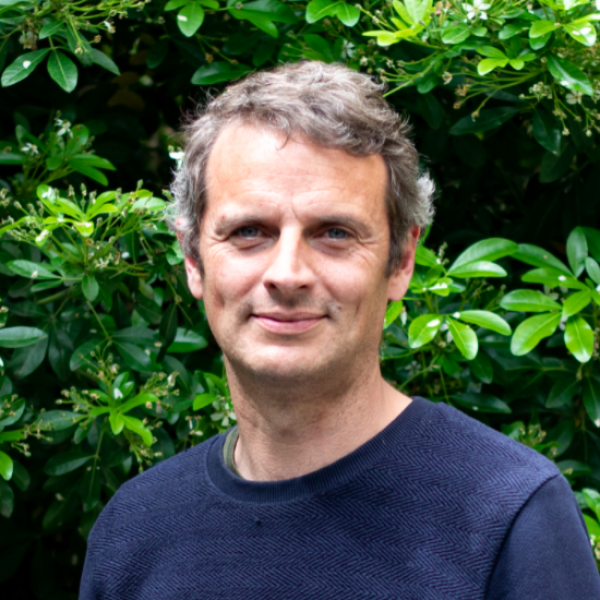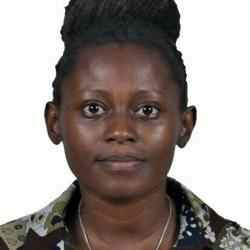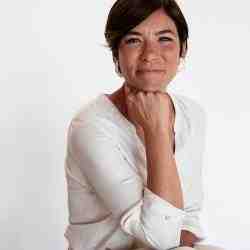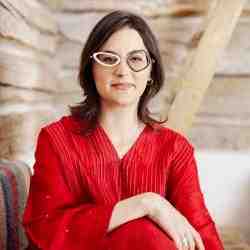Introduction
Fighting against the quality and the sustainable food apartheid that underprivileged people silently suffer from, Boris is bringing healthy food to the heart of working-class suburbs. He gives life to the concept of food democracy by empowering communities so that they can take control over the quality of their diets and contribute to the building of alternative local food systems.
L'idée nouvelle
Convinced that tackling food insecurity should not consist solely in fighting hunger but should include notions of food quality and the right to choose, and refuse a food system that is two-tier, Boris is facilitating access to quality food and responsible consumption to disadvantaged communities living in working-class suburbs. Since 2014, through his organization, VRAC- Vers un Réseau d’Achats Communs (literally meaning “Towards a common purchasing network”), he is contributing to the emergence of food democracy by empowering underprivileged populations.
Far from the traditional preventive approaches consisting of giving underprivileged people advice on how to improve their food habits, Boris is taking the inhabitants of a neighborhood through a discovery process of familiar, tasty and affordable food available from local and sustainable farmers. This journey allows him to mobilize inhabitants positively and enthusiastically around quality food and thus overcome existing skepticism and the mistaken beliefs they have developed against it, assuming that it is reserved solely for privileged people. He then equips the community with the right skills to organize themselves and to find solutions to gain access to these products. Relying on the financial and operational support of local social housing organizations, municipalities, and social centers, he helps them initiate local, wholesale buying groups to enable the purchase of local and organic dry food at a low price, thanks to the power of bulk-buying and the reduction of intermediaries and other avoidable costs such as packaging.
Using this group mechanism creates a strong community of solidary around food, that Boris leverages to create the foundations of a more comprehensive, alternative food system, which is built on inhabitants’ empowerment, as well as the right and will to consume quality food. Indeed, Boris uses this first step to build trust and identify potential local nourishing food leaders to expand his action and impact through the current implementation of Food hubs in the heart of the neighborhoods. Run by the inhabitants themselves and representing a concrete new economic activity, the purpose of these hubs is to provide novel channels of distribution, create new sources of production to expand the range of products, and generate opportunities to organize convivial, collective moments to enhance a healthy food culture and enliven community cooking efforts.
Le problème
People living in working-class suburbs represent more than 8% of the French population and structurally suffer from food apartheid, sometimes due to a lack of awareness, but above all due to problems of access to healthy and responsible food choices. Indeed, they have neither the choice nor control over the food they buy. They choose it by default nourishment represents a significant part of their monthly budget, which leads them to make choices guided by prices and discounts. They also develop a paradoxical tendency to over-consume ready-to-eat, fatty and high sugar content products, caused by numerous factors such as lack of cooking equipment, low morale etc. This trend is worsened by the fact that due to their geographic position at the periphery of metropolitan areas, they are forced to do their grocery shopping in big supermarkets that provide low-quality food, a phenomena caused by the design of the whole agri-food industry that centers on competitive prices, rather than nutritional value. This has a major impact on their heath, as statistics show that these communities suffer from higher rates of chronic diseases. According to the National Observatory of City Policies, more than half of the population living in these neighborhoods is overweight, especially women, and has an unbalanced diet. They more frequently express pathologies, among which diabetes and high blood pressure are common.
Educational and preventive approaches centered on nourishment literacy that argue that having healthy food behaviors is only a matter of will and good habits appear to be inefficient. These are often received as patronizing, guilt-laden and financially and geographically impossible to follow. If alternatives to mass distribution exist and are increasingly available through the emergence of other channels that prioritize healthy, nutritious, local and organic food (sometimes developed by Ashoka Fellows), they remain inaccessible to unprivileged suburban dwellers. Indeed, they are never located in their neighborhoods, they are unaffordable and require an involvement that can appear secondary to people’s difficult situation. Additionally, these alternatives are recognized to be the prerogative of privileged people, who have the luxury of being able to take care of themselves and of the planet, engendering a phenomenon of self-exclusion or even rejection. This leads to the evolution of a deeply inequal, two-tier food system and it generates among underprivileged people a feeling of disempowerment and shame since they have a lack of control over their consumption choices, as well as over the opportunity to take care of their own family’s health and that of the planet.
This food apartheid phenomenon is worsened by the influence of food aid on the way the French government tries to tackle food insecurity problems, generating a disproportionate focus on quantity vs quality. Indeed, the historical approach to food aid, that tackles food insecurity problems through the lens of hunger, was created at a period when food quality was not a public concern, and depends mainly on the reuse of the food waste of mass distribution. As a result, the current food aid system overlooks the notion of dignity and quality and thus neglects a large proportion of the population with low incomes but who do not benefit from food aid. Food precariousness remains an unaddressed, dormant problem lying behind the roaring phenomenon of food insecurity yet affecting 8 Million people.
La stratégie
When entering a new neighborhood, Boris always starts the discussion by focusing on the flavor of good products through tastings and fun workshops to mobilize the interest of inhabitants in food quality. Using this low-key entry and step-by-step approach allows him to build interest and trust. Then, Boris makes possible the access of normally unattainable products but also develops the communities’ agency through the initiation of quick and inexpensive means: wholesale buying groups. Indeed, wholesale buying groups are easy to implement and do not require any significant investment or infrastructure, as would a grocery shop. Boris has conceived such a simple and clear model, which he strategically develops through local, social actors, in the understanding that this is the best way to transform his idea into a new practice. When he comes to a new city and neighborhood, and begins to create a local association, Boris systematically involves social housing organizations, social workers and municipalities in the project. They are attracted by the "ready-to-use" approach, in which they recognize an empowering model, able to improve their inhabitants’ lives and health. They support the project financially and operationally, make spaces available for the pop-up grocery shop (social centers, on the ground floors of social housing buildings etc.) and communicate about the project to the inhabitants.
The communities are involved from the outset, guaranteeing that the initiative answers to their needs and that they can decide how to evolve their collective purchasing power. Inhabitants are the first recruiters of new members, since the group grows mainly through word of mouth; they have a view on the supply and can express the need of new quality products; they order the products they want to buy; they are involved in the logistics and the distribution. This distribution model is inclusive and does not stigmatize people, since it is made “for and with neighborhoods”, rather than made “for disadvantaged people”, as is the common model for most food distribution. This brings a strong feeling of agency and dignity, as low-income inhabitants can do their grocery shopping just like anybody else without any special treatment. They have access to healthy, organic, local products at cost price as long as they become members of the group, through a “pay as you feel” membership system that doesn’t require the justification of revenues.
Once the buying group is constituted, to retain members, attract new ones and above all, to enhance discussions about dietary habits in a non-patronizing way, Boris and local teams organize regular convivial and entertaining events, which he uses as nudges to encourage better food habits beyond purchase. The organization of an annual food contest with well-known chefs is a good example of this. Indeed, it enriches the neighborhood by providing an exciting and unique experience and at the same time indirectly promotes awareness of responsible consumption (e.g.: one of the challenges of the food contest is to cook a vegan meal, to make the reduction of meat consumption feasible and appealing). Trips to farms is another example of an activity that highlights the partnerships weaved with local farmers to improve consumers’ knowledge and awareness of products. This invigoration of the community allows Boris to make quality food desirable and accessible to everybody, returning food’s role as a driver of social links in places that are often suffering from social isolation. Belonging to the community generates confidence, pride, and encourages its members to talk about issues and to become advocates of responsible consumption they were previously prevented from or even suspicious about.
Boris can then tap into this energy and encourage demand to go further in his approach to the democratization of food and scale deep. He uses community dynamism as a means to increase his impact through the implementation of Food hubs. Having sourced funding, they are still in the design phase and the first Food hub will be set-up in Lyon, where Boris initially started his project. Placed at the heart of the neighborhood, these hubs will be created in collaboration with other local actors working on issues relating to sustainable food and food precariousness, to foster coalitions and mutualization, but above all, to provide a comprehensive offer of a viable and affordable, alternative local food system. In addition to the initial buying group, an urban garden, a community kitchen, a restaurant and a grocery shop will also be part of the project, enabling this new food democracy to be more visible and thus able to reach a wider audience.
In just 6 years, Boris’s intervention has triggered the growth of almost 50 nourishing food communities in 10 cities in France, each one hosting a non-profit organization initiated by inhabitants and local actors. Thus, he has already managed to convene more than 3300 households and 8000 individuals, who state that they have changed their food habits in terms of purchasing and cooking; that they have improved self-esteem and created social links, by becoming consumer-actors, which has a positive impact on their health and on the environment.
The relevance and singularity of Boris’ project gives him the necessary traction to lead impactful advocacy work that slowly changes how the fight against food precariousness is considered by the government and other associative actors: from emergency aid to a much broader perspective of prevention and dignity. Indeed, Boris is managing to raise public and political awareness about an often-hidden issue and shows that underprivileged people, living in deprived suburbs, not only deserve quality food but want it. He produces alternative narratives through the recent publication of 3 artistic books fighting against stereotypes and showcasing that quality food and working-class suburbs are already compatible, distributed by mainstream publishers and co-authored with renowned writers and journalists. Additionally, the creation of an inter-associative collective, able to bring a powerful new voice to the national debate about the fight against food insecurity, to work towards a more just and egalitarian food system, is also part of his advocacy work. This work has already allowed him to enlarge the definition of the fight against food poverty to food precariousness, which includes notions of quality and people’s empowerment and dignity. Indeed, he has recently been interviewed and quoted as an example of best practice in a report of the General Inspectorate of Social Affairs (IGAS), and VRAC has also been highlighted in a recent 50 Million euros Ministry of Solidarity and Heath’s public call for proposals in the framework of the Covid Recovery Plan.
VRAC is about to be implemented in a dozen other cities in France and is in discussions with cities in Belgium and Switzerland. Boris uses word of mouth among communities but also cities as actors to spread the message. As a result, he is solicited daily by social housing organizations or local municipalities to give his expertise and open buying groups in new cities. Also under discussion at the level of the European Commission, is the question of possible financing to export the concept to Spain, Sweden and Poland. In the desire to disconnect his wider impact with that of the growth of his organization, Boris is currently designing an incubation program for local project holders who would like to implement VRAC in their region and create a local VRAC association of their own. He is also planning to empower existing, embedded associations who are willing to implement their own food democratization initiative.
La personne
Boris grew-up in a working-class family in Northern France, where, according to his words, you find the same isolation and the same economic precariousness as in the suburbs of big cities, where he operates with VRAC, the only difference being the seize of the towers. While his parents were both working in a factory, a large part of his family had an agricultural background, leading him to spend a lot of time at the farm with his cousins and to create a special relationship with food and the rural world. After barely graduating from high school, failing college, and doing one precarious job after another with few prospects, he decided to move to Lyon to work for a toy store where he was fired because he had criticized the company’s lack of ethical fiber.
At the age of 20, he was unemployed but fascinated by the anti-globalization movement growing at the beginning of the 2000’s and was particularly interested in activist farmers like José Bové fighting against GMOs. Therefore, in 2003, although local and sustainable products were still the prerogative of environmental activists stigmatized as retrograde, he decided with two friends to open a cooperative restaurant to democratize local and sustainable farming products with the aim to demonstrate their accessibility. After one year of sourcing local products and building an informal community to convince the banks that their pioneering project had a chance to succeed and meet demand, they managed to open “De l’Autre Côté du Pont”, in a modest district of Lyon. Their restaurant quickly became a popular spot, drawing together militants, political representatives and neighbors. This allowed Boris to hire 9 staffs, open a sustainable grocery, and launch one of the first French Association pour le Maintien de l’Agriculture Paysanne (AMAP, French equivalent of CSA – Community Supporting Agriculture), contributing afterwards to the regional spread of the movement.
Although this decade-long journey showed that alternative consumption was possible and not necessarily more expensive, Boris observed that his initiative had unintentionally participated in the gentrification of the neighborhood. Beyond that, he realized that, even though he himself came from a low-income family, he was only reaching a well-informed public and not the majority of the population, especially not disadvantaged people. This wake-up call led him to decide to go back to school to study Social and Solidarity Economics, hoping to find solutions and expertise he felt he was lacking. In the meantime, during a conversation about food poverty and accessibility with the chairman of an important local social housing organization (Est Métropole Habitat) and the regional head of a major charity fighting against poverty (Fondation Abbé-Pierre), both clients of his restaurant, he realized the importance of giving access to local, sustainable, quality food to disadvantaged people. After months of field work to discuss with inhabitants and understand where they were regarding responsible food, the idea of buying groups emerged, and both Est Métropole Habitat and Fondation Abbé-Pierre, decided to fund the initiation of the venture, trusting Boris’ entrepreneurial skills and intuition that they had observed for years. VRAC was born and would soon follow the creation of the first buying group in a neighborhood at the periphery of Lyon.



